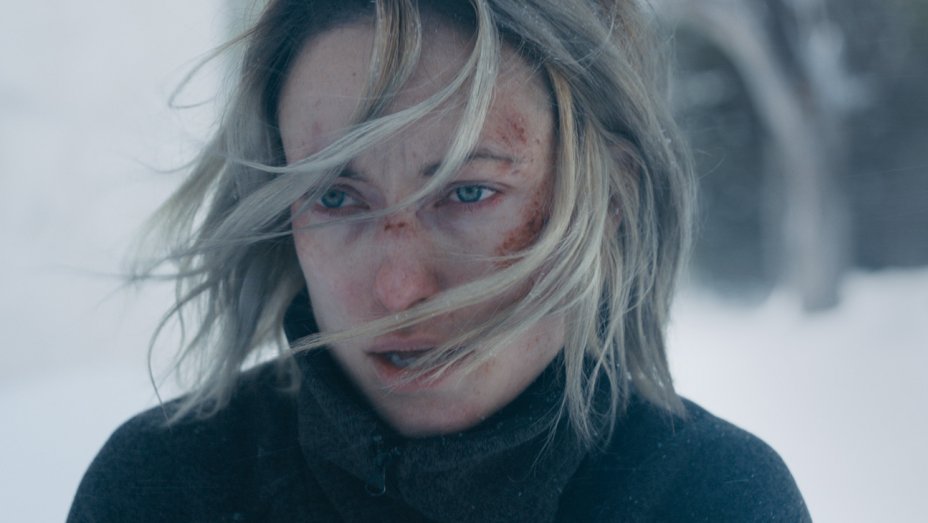
Directed by Australia’s own Sarah Daggar-Nickson and starring Olivia Wilde, A Vigilante is a powerful drama that sees Wilde play the titular role – Sadie, a vigilante who helps domestic abuse survivors get out of their situation by literally bringing the abusers to their knees.
Spurred on by her own experiences and a tragedy, the film jumps between her own battles – often experienced by the audience through silence, tears and screams (and a marvellous performance from Wilde) – and the physical battles in confronting the abusers, and the experience of relief of the survivors.
It’s a tricky subject to approach without being emotionally manipulative, or upsetting real life survivors who may be seeing the film. On the latter front, by using real survivors of domestic abuse in counselling scenes, Daggar-Nickson holds the film brilliantly in a world of reality. In the Q&A that followed the screening of the film, Sarah said she made the film because she was “awe inspired by the strength of domestic abuse survivors”, and this definitely comes across. And judging by the emotional, but positive responses provided by some members of the audience who made themselves known as domestic abuse survivors, they were more than successful in treading carefully across those waters.
Whether or not the film was emotionally manipulative, I think will come down to the viewer. Olivia Wilde delivers a terrific, powerful performance, and her statement that she wanted to provide a performances that “did their courage justice” holds true. Sadie’s panic attack sequences are incredibly powerful, brought on by memories of her tragedy. And on the flip side, having learnt Krav Maga for the film, Wilde gets to show herself off as, for lack of a better term, a total “bad ass” for the film, which provides suitable balance. But brace yourself for a lot of emotional scenes, which some may find too much; but in the context of the film, I found it was well balanced and was a difficult watch because it should have been a difficult watch. If you don’t get emotional hearing these stories, and going through the experience with Sadie, you’re not human.
The production design and colour grading of the film was one of note – dull colours parading through every scene really emphasising how Sadie has lost the vibrancy of her life. There’s also terrific use of the soundtrack; the film is often silent, both in music and dialogue, bar for the scenes saving the abusers, and a well placed Yeah Yeah Yeahs appearance, in a brief moment of exaltation.
Where the film struggles is in its time-jumping narrative; I left the film a bit confused as to what happened when. Did the scene’s final act happen before or after some of the film’s earlier events? What did the final scene signify? Once Daggar-Nickson started jumping back and forth between “pre” and “post” vigilantism, the film struggled with clarity: but more than anything I feel this would be rectified on a second viewing. The film is intense, it’s easy to get lost of some of the details as you get lost in the emotion.
The film’s final act also isn’t quite as satisfying as the film sets it up to be, relying on some traditional thriller tropes and some jarring pacing to take us over the line. But perhaps that was the point: the film never endeavoured to deliver the expected, even if that meant the unexpected was something you’d have found elsewhere. And in that respect I’d argue the film is all the more real for it, leaving us on a message that the super hero ideals are unjust and unrealistic; no one is perfect, no one is invulnerable and no story guarantees a happy ending.
Buoyed by inspired direction from Sarah Daggar-Nickson and an Oscar-worthy performance from Wilde, the film proves itself to be an unforgettable and important story, in spite of any blemishes we might find along the way.
Review Score: FOUR STARS (OUT OF FIVE)
A Vigilante premiered earlier this month at SXSW in Austin, Texas.
———-
